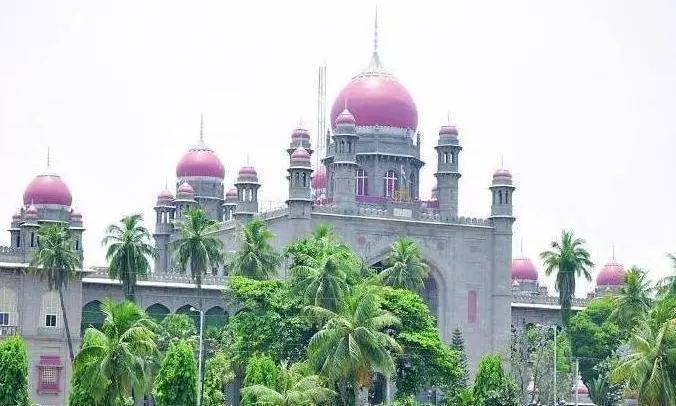
Hyderabad: A two-judge panel of the Telangana High Court, comprising Justice K. Surender and Justice Anil Kumar Jukanti, acquitted eight persons convicted in a 2012 double murder case involving the deaths of Gaini Chinna Muthanna and his son Gaini Subash, in Godisera village, Adilabad district. The criminal appeal was filed by Gaini Suman and others, who had been sentenced to life imprisonment by the I additional sessions judge, Adilabad. The panel found them not guilty due to inconsistencies in the prosecution’s case, which arose from a long-standing family feud over land and the use of a shared borewell pump. The prosecution alleged that on September 27, 2012, the accused dragged the victims out of their house and attacked them with axes and sticks, resulting in their death. However, the panel identified several flaws in the evidence. Conflicting eyewitness accounts and discrepancies in the timeline of events undermined the prosecution’s narrative. Additionally, a delay of 11 hours in filing the FIR raised further doubts. The postmortem report revealed semi-digested food in the victims’ stomachs, contradicting the alleged time of the attack. Furthermore, two accused were reportedly at a police station at the time of the incident, a fact overlooked by the lower court. The panel concluded that the investigation was flawed and that the prosecution had failed to establish guilt beyond a reasonable doubt. The panel also emphasised that in criminal trials, any reasonable doubt must favour the accused. Accordingly, the panel allowed the criminal appeal and set aside the conviction order.
HC quashes two orders of vidyut ombudsman
Justice Nagesh Bheemapaka of the Telangana High Court quashed two orders issued by the vidyut ombudsman, citing a lack of jurisdiction. The judge dealt with a writ plea filed by Telangana State Southern Power Distribution Company Limited (TSSPDCL), which who challenged the orders passed by the ombudsman, contending that the officer did not meet the eligibility criteria prescribed under Clause 3.6 of the Telangana State Electricity Regulatory Commission (Establishment of Mechanism for Redressal of Grievances of the Consumer) Regulations, 2015. The dispute arose when. Sri Sai Ram Ice Factory, a consumer under the low tension (LT) industrial category, exceeded the maximum demand specified under the 2018-19 tariff orders. TSSPDCL subsequently billed the consumer under the High Tension (HT) tariff category for several months in 2020. Dissatisfied with this reclassification, the consumer approached the consumer grievances redressal forum (CGRF), which upheld TSSPDCL’s action. The consumer then filed an appeal before the ombudsman, who overturned the CGRF’s decision and directed the electricity provider to follow certain procedural steps in re-categorising the consumer’s tariff classification. The petitioner challenged the orders on the grounds that the officer officiating as the ombudsman was not qualified under the TSERC Regulations, which require the ombudsman to be a retired district judge, a retired secretary (law) to a state government or a person with at least three years of experience as a member or chairperson of a statutory quasi-judicial body at the state level. The petitioner also argued that the ombudsman had failed to consider the provisions of the Electricity Act 2003 and the general terms and conditions of supply (GTCS) when issuing the impugned orders. Additionally, they contended that the billing under the HT category was justified as it adhered to the tariff orders and GTCS clauses applicable to cases where load limits exceed. The judge examined the qualifications of the officer who acted as the vidyut ombudsman, as well as the legal framework governing such appointments. Relying on precedents established by the Supreme Court, the court emphasised that jurisdiction cannot be conferred through acquiescence or consent if statutory conditions are not met. Referring to Clause 3.6 of the 2015 Regulations, the court noted that the officer, a joint director (law) in TSERC holding an additional charge as ombudsman, lacked the requisite qualifications to occupy the position. Consequently, the judge declared the orders passed by the ineligible officer null and void, as they were issued without jurisdiction.
Matwada ACP asked to stay away from jeweller’s financial dispute
Justice B. Vijaysen Reddy of the Telangana High Court passed an interim order directing the assistant commissioner of police, Matwada, Warangal, not to interfere in civil and financial disputes between a business owner and a money lender. This direction came in response to a writ plea filed by Dubasi Mahesh, proprietor of Vedamrutha Jewellers, situated in Warangal. The petitioner alleged that the respondent was constantly harassing and threatening the petitioner to settle financial disputes with his money lenders. It was the case of the petitioner that the assistant commissioner was interfering in their financial disputes without following the due process of law. It was alleged that the actions of the respondent were highly illegal and in violation of the Constitution of India apart from violating the principles of natural justice. After hearing the counsel for the petitioner, the judge passed the interim direction and directed the petitioner to implead the unofficial respondent money lenders. The judge also posted the matter for further adjudication.
